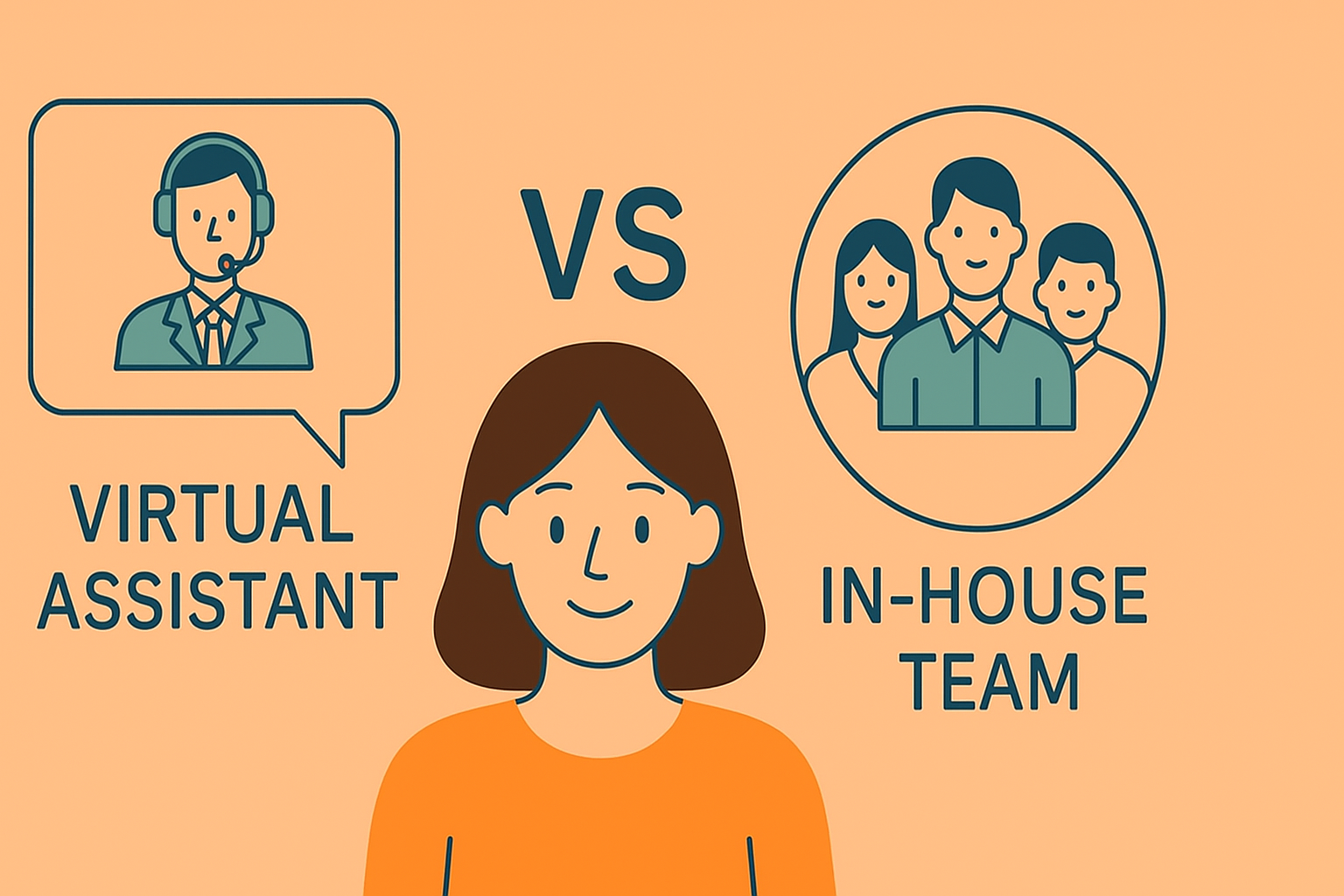Every e-commerce entrepreneur hits the wall. That invisible barrier where growth stalls not because of a lack of customers, but a lack of time. You’re spending precious hours on inventory checks, customer service emails, and listing optimizations, the essential but repetitive gears of the business. But what is the actual cost of doing it all yourself? It’s the opportunity cost of neglecting strategic growth.
To US-based e-commerce business owners who want to push past the grind and into extreme growth, the answer isn’t hiring; it’s hiring smart. It’s time to discuss the measurable return on investment (ROI) of bringing professional ecommerce virtual assistant services onboard with your business. This isn’t an expense; it’s a strategic investment with a measurable return on investment.
Decoding the Dollar-for-Dollar Advantage
The strongest and most direct argument for the utility of an ecommerce virtual assistant is the staggering disparity in operation cost. Pitting a full-time, on-staff individual against one dedicated virtual assistant, the ROI comes into high relief:
Expunging Overheads: A conventional W-2 employee costs a salary, medical cover, payroll taxes, physical office space, and equipment. All this package contributes 30-50% over the base salary. A virtual assistant receives a single hourly or monthly fee, expunging all such overheads in one go.
Pay Only for Productivity: You only pay a virtual assistant for the time that they are indeed working on your business. You’re not paying for drive time, water-cooler breaks, or admin downtime. This focused efficiency means that almost every dollar that you’re paying is going into the fulfillment of a task.
Access to Expertise: The top-rated ecommerce virtual assistant services provide VAs who are already well-versed in platforms such as Shopify, Amazon Seller Central, Etsy, and other helpdesk/CRM tools. You save weeks of training and get an immediately productive, specialist employee on day one, keeping your ramp-up cost at zero.
The Real Results: Time is the Ultimate Dividend
The largest error a business owner can commit is to view VA services as cost-cutting alone. The greatest ROI measure is time recovery.
Think about the most important work that usually takes up 25 to 40 hours of a founder’s week. Think about the inventory and listing work to keep stocking and title-optimizing; outsourced equals quicker inventory turnover and better SEO visibility. Imagine the customer service time for tickets, returns, and refunds; moving this equals flat-out increased customer satisfaction scores (CSAT) and better reviews.
Now include data input and reporting, such as monitoring sales and tracking expenses. When a VA does these kinds of things, you have accurate, up-to-the-minute data to do strategic planning with, without spending your time sifting through it manually. Even the routine task of social media scheduling and community interaction, when outsourced, equates to a steady brand presence and saves you money in agency marketing costs.
The Strategic Edge: From Support to Growth Partner
An ecommerce virtual assistant is no administrative assistant; he or she is a force multiplier for a growing business. Placed strategically, they generate quantifiable growth in top categories:
Conversion Rate Optimization (CRO): A VA might be charged with A/B testing product copy or checkout flow modifications. A 0.5% conversion rate boost can translate into tens of thousands of dollars of additional revenue each year.
Review Management: Encouraging, tracking, and answering customer reviews is a trust and SEO value. A VA makes it automatic, improving star ratings and organic traffic.
Marketplace Compliance: Keeping up with constantly changing Amazon or eBay rules is a full-time job. A VA keeps your business in compliance, safeguarding your accounts from suspension and penalty expenses.
Ultimately, the ROI on ecommerce virtual assistant services is the difference between stagnation and runaway expansion. You’re paying a small, sustainable fee to get not just an employee but leverage—the opportunity to concentrate your special talents on the activities that are making you the most money. It’s an investment that pays for itself repeatedly by liberating the founder to do what they are best at: being the visionary.
FAQs:
1. How much can you earn as a VA for Shopify?
You can make $5 up to more than $50 per hour, depending on your expertise, abilities, where you are located, and the complexity of e-commerce work you are doing.
2. Can a beginner become a Shopify VA?
It is possible to become a Shopify VA as a novice by focusing on fundamental e-commerce abilities, platform knowledge, and offering entry-level support services.
3. What is the hourly rate for a virtual assistant?
Virtual assistants usually charge between $7 and over $100 per hour, depending on their location, level of experience, and area of expertise. For ongoing work, pay $15-$35 an hour.








